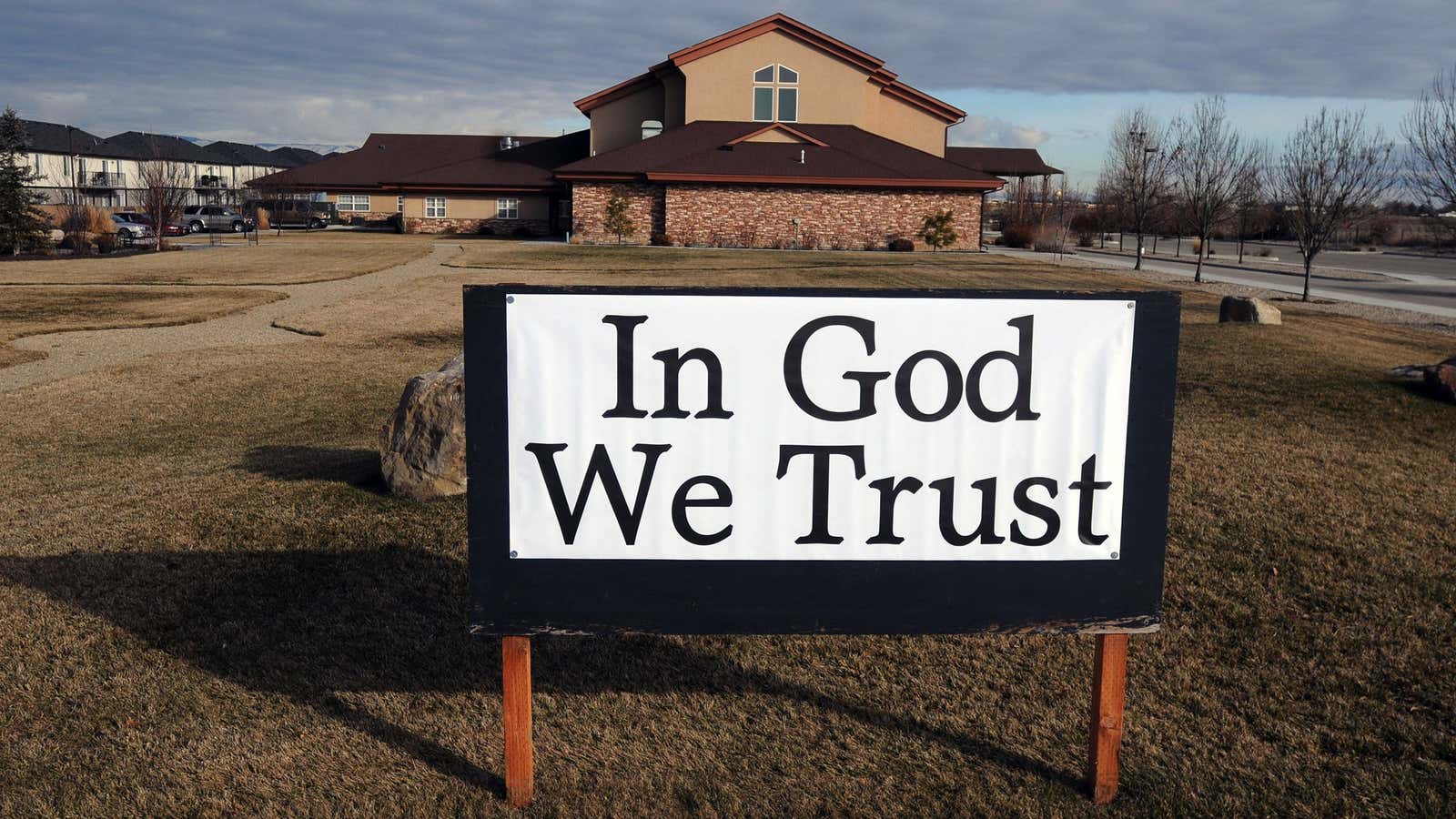The words people use say a lot about their personalities, emotions, and thinking. And the ones they use when asking to borrow money, it turns out, also says a lot about whether they are likely to pay others back.
According to a new study, borrowers who try to appeal to their prospective lenders’ emotional side—by mentioning God, divorce, or the needs of family members, for example—are less likely to fulfill their loan obligations (something to keep in mind when our buddies or family members try to mooch off of us).
On the other hand, people who mention aspirations like graduate school or weddings are more likely to pay back their loans.
The findings were presented at the Boulder Summer Conference on Consumer Financial Decision Making this week and come from research by Columbia University professors Oded Netzer and Alain Lemaire, and University of Delaware professor Michal Herzenstein. The research is ongoing and hasn’t been published yet.
The team has analyzed the text of more than 18,000 loan requests made between 2007 and 2008 through US peer-to-peer lending website Prosper to measure what words appeared most often in the 33% of loans from that timeframe that eventually went into default. (Remember, the US was on the cusp of a major recession then, and Prosper was just starting out.)
They found, for instance, that the word God was 2.2 times more likely to appear in a loan application where the borrower eventually defaulted. Borrowers who used the phrase “payday loan” in their applications were 2.7 times more likely to default than the average.
Being nice (using words and terms like “hi,” “thank you,” and “bless you”) correlated with higher default rates, as did using the future tense (“will not,” “will have”). Both tend to correlate with making promises a person does not intend to keep, Netzer said at the conference. Meanwhile, people who referred to signals of financial stability and exhibited financial literacy with phrases like “excellent credit” and “lower interest rates” were more likely to pay back their loans.
The group found that analyzing the words used in the initial loan applications could improve the ability to predict loan defaults by 4% to 5.7% over traditionally used information like credit scores and other financial metrics, which researchers estimate could have saved Prosper lenders from losing over $1.4 million in loans gone bad.
The findings take on greater importance in a world where a growing amount of lending is starting to occur over the Internet, without a human loan officer who once upon a time might have picked up on dubious body language.
In place of real people, we can find meaningful personality traces in the words people use, Netzer said.
To be sure, making loan decisions partly based on a borrower’s grammar, spelling, and word choice could unintentionally bias lenders against groups like immigrants with poor English.
“One of the advantages of being an academic is the ability to study things without thinking about the ethical issues of implementing these processes,” Netzer said. “When it comes to people, banks, and lenders truly using these techniques, ethical issues absolutely need to be considered.”
